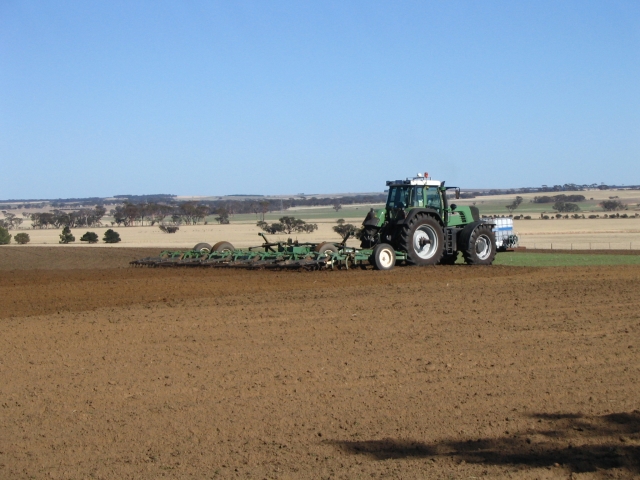Reduced tilling improves soil microbe biodiversity
 The theme of this year’s ESA meeting is “Ecological Knowledge and a Global Sustainable Society, and the program shows it: there are at least six sessions devoted completely to sustainable agriculture and agroforestry. Most studies approach the problem of increasing cropland productivity while causing little harm to the environment by assessing above-ground processes, like cropland biodiversity or the use of pesticides. But in a poster today, Shashi Kumar of Texas Tech reminds us that we also need to think about what’s going on underground.
The theme of this year’s ESA meeting is “Ecological Knowledge and a Global Sustainable Society, and the program shows it: there are at least six sessions devoted completely to sustainable agriculture and agroforestry. Most studies approach the problem of increasing cropland productivity while causing little harm to the environment by assessing above-ground processes, like cropland biodiversity or the use of pesticides. But in a poster today, Shashi Kumar of Texas Tech reminds us that we also need to think about what’s going on underground.
Soil bacteria affect the growth and success of crop plants by fixing nitrogen, aiding in the uptake of nutrients and decomposing dead organic matter. Kumar’s poster shows, however, that some current farming practices may disrupt the soil ecosystem and decrease the effectiveness of the microbe community. Kumar explored the relationship between conventional tilling and low-tilling practices on farms in semi-arid areas of west Texas. In areas where soil tilling was kept at a minimum, Kumar and his colleagues found a higher diversity of soil bacteria; conventional tilling produced lower bacterial diversity.
Kumar says that conventional tillage systems disrupt soil particles and decrease soil pore size, which can lead to decreased water and soil access for microbes. Although he recognizes that tillage is necessary, he thinks that farmers can reduce their tillage, even in semi-arid regions, to promote soil bacterial biodiversity.
“We are currently using so many different crop management systems, like pesticides, insecticides and fungicides, which are damaging to our soil,” Kumar says. “Why shouldn’t we focus on biological methods, since the bacteria are already there?”